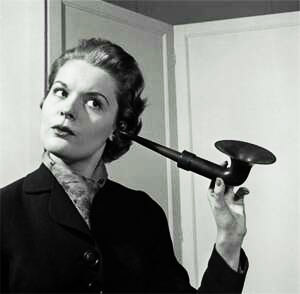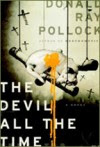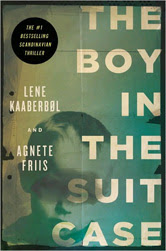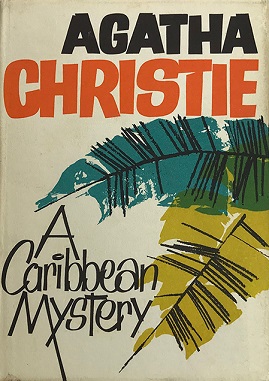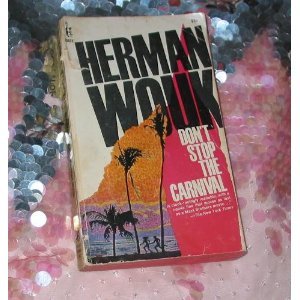 by Fran Rizer
by Fran Rizer
Many readers are familiar with South Carolina's three most notorious killers: Donald (Pee Wee) Gaskins, Larry Gene Bell, and Susan Smith.

Gaskins (photo on left) tortured, killed, and admittedly cannibalized anywhere from one hundred to a hundred and ten victims--some for fun, some for profit. He once escaped prison by hiding in a garbage truck and fled to Georgia, but was recaptured there. Sentenced to the electric chair twice, Gaskins's first sentence was changed to life in prison when the courts reversed South Carolina's capital punishment laws. While serving the life sentence, Gaskins killed a fellow death-row inmate by blowing him up with explosives. This was a hired hit, and capital punishment had been reinstated in South Carolina. Gaskins was electrocuted in "Old Sparky" in 1991. He was known as "The Meanest Man in the World" and the "Redneck Charlie Manson."

Larry Gene Bell Shari Smith and ten-year-old Debra May Helmick. He forced Shari Smith to write a "Last Will and Testament," which he mailed to her family. He also harrassed the family by telephone both before and after Shari's body was found. He obsessed about and threatened Shari's sister Dawn. Bell is suspected of having murdered more young females before these two.

Susan Smith (left) is serving life for the intentional drowning of her sons, fourteen-month-old Alexander
and three-year-old Michael. Born 9/26/71, Smith had a tragic childhood. Her father committed suicide when she was six years old, and later she was a documented victim of sexual abuse by her step-father. Smith had hopes of a future with her wealthy employer when her divorce was final, but the man told her he wasn't interested in a "package deal" or raising another man's children. Her sentence start date was 11/04/94.
There are many books, movies, and documentaries about these three, or to make it simple, just look them up on Wikipedia. Our topic for today is also murder in South Carolina, an
account written by Evelyn Baker, who knew the victims. Though less notorious, the case of The Good Twins is as chilling as any of the more famous killings. Here’s the story:
THE GOOD TWINS
by Evelyn Baker
It seems like yesterday when my older friend Cleo said, "Eve, my son Frankie is moving down here from Tennessee. He's divorced, and I'd like you to meet him."
I thought, "If he's anything like his mom, I'll like him." Cleo was a character. That's the best word for this petite, guitar-playing singer from Nashville. She was full of off-the-wall advice like, "Enjoy your youth. When you wake up on your fortieth birthday, take your clothes off and stand in front of a mirror. You'll see gravity drop everything toward the floor," and, "Don't put all your eggs in one bastard."
Frankie moved to Columbia Nashville. Lake Murray
mar
riage, Cleo wanted another divorce.
mar
Soon Frankie had gone to Tennessee
nd Cleo had moved out of her beautiful house. Mother and son rented a mobile home in Irmo to live in while they built a new house on lake-front property Cleo owned. They put a small travel trailer camper on the lot for convenience
when working because they were doing some of the building themselves.
nd Cleo had moved out of her beautiful house. Mother and son rented a mobile home in Irmo to live in while they built a new house on lake-front property Cleo owned. They put a small travel trailer camper on the lot for convenience
With that good old SC hospitality, I invited Frankie and his twin sons--Craig and Timmy--to my home for a cookout. The twins didn't like hanging out on the patio, and my three children invited them to the upstairs game room. At a reasonable hour, Frankie called the boys down to go home. After they were gone, my oldest child, Susan, told me, "Mom, you don't want those boys around Chris and Jeffrey. They talk ugly, and they're mean."
"What did they do?" I demanded, immediately defensive of my young ones.
"They didn't hurt any of us. They just talk mean. I would have called you upstairs if they hurt anyone."
Susan refused to add anything more, but I didn't invite Frankie to bring his sons back. When he suggested family activities, I made up excuses. He acknowledged that his sons were “a hand full,” but he loved them. I didn’t have the heart to tell him, “My kids don’t like your kids.” We saw less of each other, but Frankie and I still talked on the telephone a lot.
That fall, Frankie's cousin LeeAnn called me one night and asked, "Eve, do you know where Frankie is? Nobody in the family has heard from him for days. Even Cleo doesn't know where he is."
I was able to ease their minds by telling her, "Frankie told me he was going to Nashville for a few days."
Months later, LeeAnn called me again looking for Frankie. I was working at a supper club, and she actually had me paged at work, which was as rare as the snow on the central South Carolina ground that Friday night.
"Do you know where Frankie is?" LeeAnn asked. "Nobody in the family has heard from him or Cleo all week. I called the school today, and the twins have been absent several days."
I admit I was a little irritated to be called at work about this. "You know Frankie and Cleo. They're both free spirits. Probably took off for Tennessee again," I answered. "Don't worry. They're both adults and I'm sure the twins are with them, where ever they are."
LeeAnn continued, "I went by their mobile home in Irmo. I tried to look through the blinds on the window, and it looks like Cleo is lying on the couch, all wrapped up in that afghan she loves so much. I beat and beat on the door, and she didn't move."
"One of them must have dropped the afghan on top of something on the couch," I suggested. "Frankie is so excited about building the new house. I'll bet they're up there and the phones aren't working because of the ice and snow. They're probably fine in the travel trailer," I assured her, eager to get back to work.
"Would you ride up there with me after you get off?" LeeAnn's voice was pleading.
Now the last thing I wanted to do at two o'clock in the morning was ride thirty miles on icy, snowy roads in South Carolina, where most of us don't know how to drive in those conditions. "Call the sheriff," I suggested. "Get them to stop by and check. They'll probably call you back to tell you everything's fine."
"I'll call you when I know something," she said.
"Wait 'til I'm off work," I replied.
A few hours later, at the busiest time of the night, LeeAnn had me paged again. "We're slammed right now," was the first thing I said. Then I realized she was crying.
"They're dead!" she sobbed. "The cops found Frankie and Cleo shot to death in the travel trailer, and the boys are missing. They've been kidnapped."
I personally couldn't think of why anyone would want to kidnap fifteen-year-old boys other than for ransom, and the only ones who'd pay ransom for them had been killed. I'd bet the boys were injured or dead somewhere.
Cleo had apparently been cooking when she was shot standing in front of the open refrigerator. One of the bullets went through her and wound up in an egg stored on the fridge door. Frankie had been shot in the back.
Though I tried, it was impossible to console LeeAnn and other family members who were devastated by the deaths and worried sick about the twins the next few days. Their fear for the twins changed when the cops told them that Cleo's jewelry had been pawned downtown by identical teenagers. Craig and Tim are identical twins. A few days later, the boys were arrested hiding in Nashville. They'd trashed motel rooms on their way.
Craig had always been the dominant brother, and Timmy generally followed along. They confessed that they'd planned to kill their dad and grandmother so they could have money and move back to Tennessee. In 1989, Craig was convicted of murder and sentenced to life in prison. Tim was convicted of voluntary manslaughter and sentenced to fifty-five years and six months in prison. Tim's first parole eligibility is 9/20/12 and Craig's is 11/09/13. The boys have been incarcerated in separate facilities, but neither has a good record in prison, so it's unlikely, though not impossible, that either will be paroled at first eligibility.
Why would anyone call men who brutally murdered their father and grandmother "good"? Because that's their surname. Craig is Craig Layman Good and Tim is Timothy Sean Good.
They are "The Good Twins."
Postscript from Fran: Writers are frequently asked where story ideas originate. Real life is the basis for more than just true crime stories. Truth is, sometimes, indeed, stranger than fiction. If you'd like to see current photos of Susan Smith, Craig Good, and Tim Good, go to
SC's Incarcerated Inmate Search at http://sword.doc.state.sc.us/scdc-public/
Until we meet again… take care of YOU.









